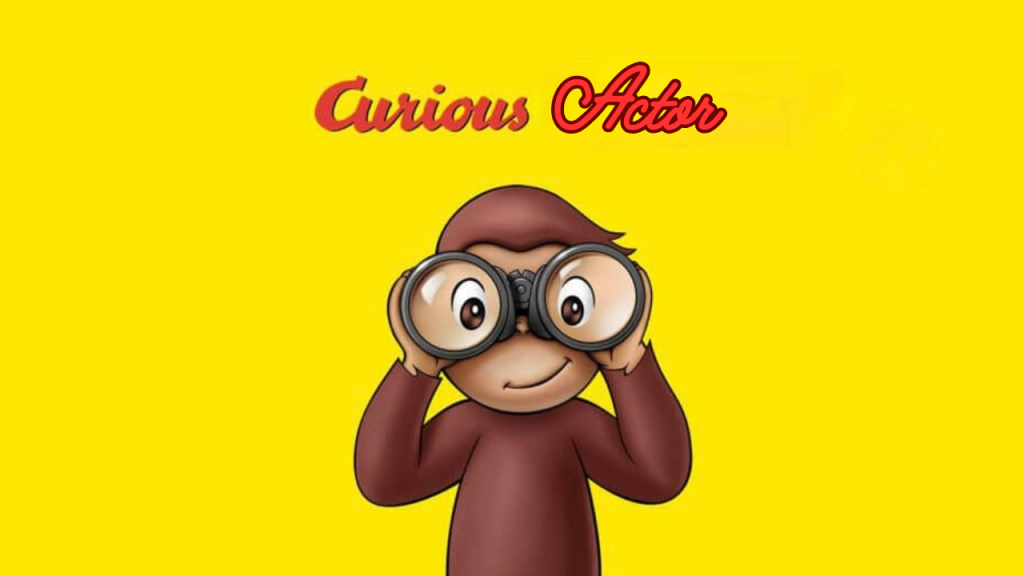Imagine a world overflowing with questions, a world where “Why?” and “How?” are the most common greetings. That’s the world fuelled by curiosity, a world we all used to inhabit as children. But somewhere along the way, we traded wonder for Wi-Fi, and exploration for endless scrolling and mind numbing apps.
How can we, as artists, as actors, reclaim the spark and rediscover the power of curiosity which isn’t just a childhood fancy but a fundamental human drive as essential as hunger or thirst.
It actually activates the same reward pathways in our brains, pushing us to explore, learn, and grow. There’s a reason for the saying we thirst for knowledge.
Our early ancestors were driven by curiosity to discover new food sources, later on – new ways to build and construct things, and nowadays – different approaches to entertaining an audience. This same drive exists in us, but it’s often overshadowed by small screens and busy schedules.
Ever wonder why some people crave exploration more than others? Science points to a fascinating culprit: the wanderlust gene. This gene influences dopamine, a neurotransmitter associated with anticipation of reward.
Think of the dopamine hit we get from a delicious piece of chocolate – the wanderlust gene is like having a lower baseline for that feeling.
People with this gene have a thirst for bigger and bolder experiences to trigger that dopamine rush. This translates into a love for exploring new places, delving into unfamiliar topics, and building new relationships.
They’re natural learners, eager to expand their knowledge by encountering different cultures, ideas, and people. It’s a constant pursuit of discovery, fuelled by the promise of a fresh dopamine reward around every corner.
This is what us artists should aim for, to trigger that dopamine rush so it keeps us constantly looking, searching for more.
Our natural curiosity faces challenges in today’s world. Constant distractions from digital devices fragment our attention, making it harder to engage in deep exploration. Similarly, stress and overwhelm leave little mental space for inquisitive thinking.
In most work environments, we’re often rewarded for providing answers, not asking questions.
In today’s fast-paced world, prioritising curiosity can feel like an act of rebellion. It takes courage to slow down, ask questions that might not have immediate answers, and embrace exploration for its own sake.
Yet, this rebellion is an act of freedom, a liberation from mindless consumption, and a path towards a brighter future where curiosity thrives.
So, here are nine ways to become a more curious actor:
- Be an observer of the world: watch people, eavesdrop on conversations in cafes (discreetly!), explore new places, and pay close attention to the details around us. This fuels our imagination and provides a wellspring of inspiration for our characters.
- Ask “Why?” relentlessly: When reading a script, let’s not just accept things at face value. But, ask ourselves “Why” about every character’s action, motivation, and backstory.
- Embrace diverse learning: To take workshops outside of acting, like improv, dance, or even public speaking. Learning new skills to keep our minds agile and open to new perspectives.
- Research: Don’t stop at the script. Researching the historical context, the playwright’s background, and any cultural references will give us a deeper understanding, and thus will enrich our performance.
- Question the director: Let’s not be afraid to ask questions about the play, the characters, or the director’s vision. The more we understand, the more we can contribute.
- Collaborate with our fellow actors: Discuss the script, explore interpretations, and bounce ideas off each other. A curious ensemble creates a more dynamic and engaging performance.
- Mind mapping: we can mind map out the relationships, motivations, and conflicts within the play or script. This helps us see connections we might have missed.
- Character journaling: Writing from our character’s perspective, exploring their thoughts, feelings, and daily routines. This will help us inhabit the role more fully.
- “What if?” games: Imagine alternative scenarios for our character. What if they made a different choice? How would they react in a different situation? This expands our understanding of the character’s potential.
Remember, curiosity is a lifelong journey. The more we practice, the more naturally it will become a part of our acting process.
make space to explore it curiosity today.
